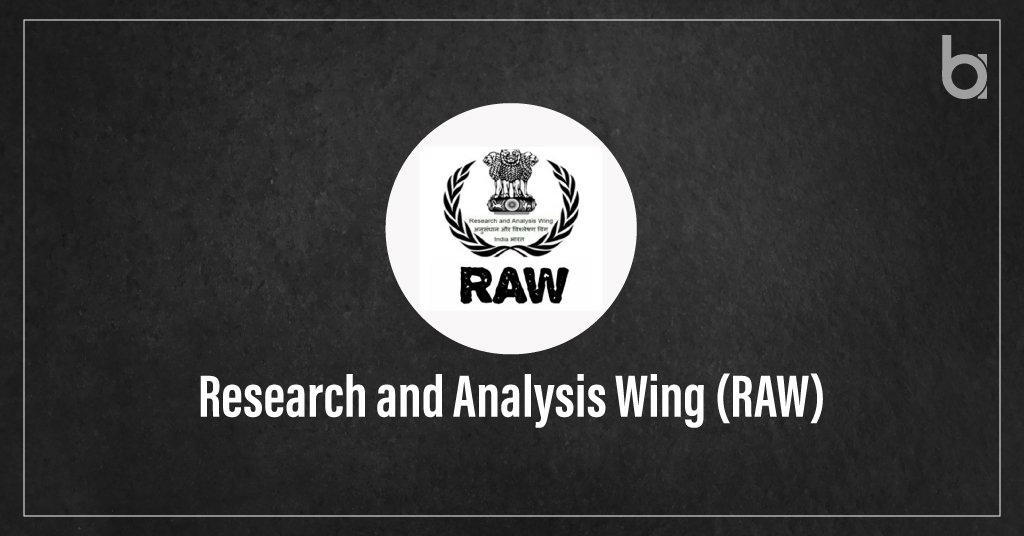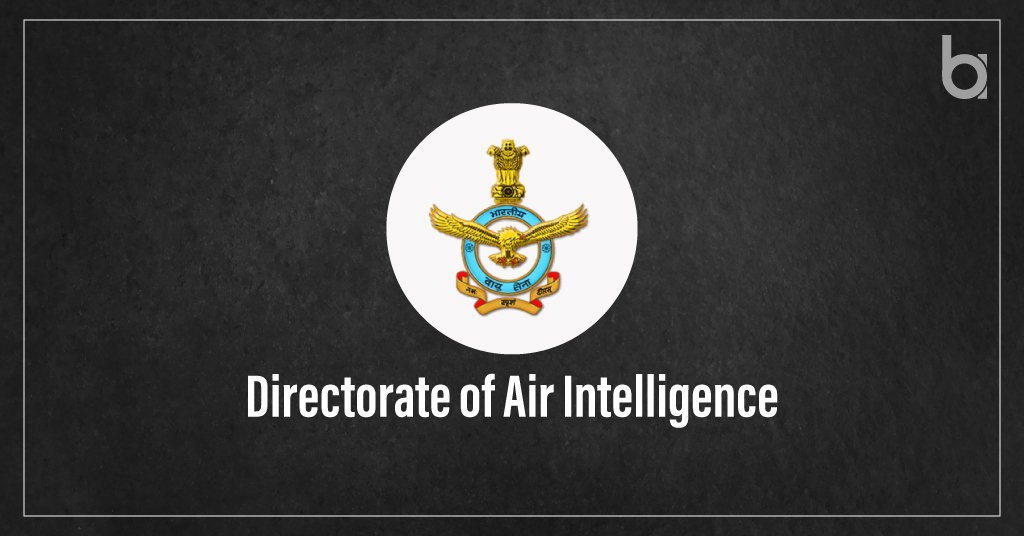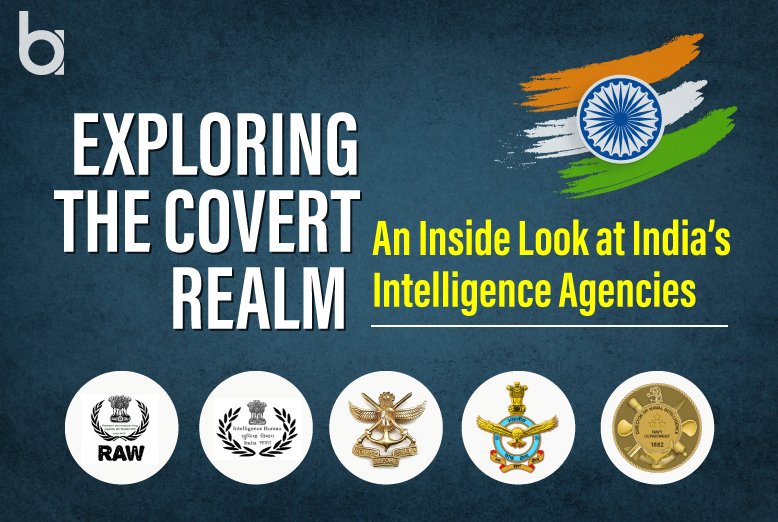Have you heard about the upcoming film, Tiger 3? It’s not just any movie; it’s like a secret mission. We often talk about our defenders, from regular police officers to top military personnel. But there are some unsung heroes who are just as brave, skilled, and intelligent. They stay hidden because if their real identities come out, it could lead to chaos at our borders and inside our country. They work in disguise, quietly protecting us. In this blog, we’ll explore some of the top intelligence agencies in India that train these hidden heroes, all for our safety.
1. Research and Analysis Wing (RAW)

- Formation: 1968
- Area of Work: Foreign intelligence agency
- Founder: Rameshwar Nath Kao
- Headquarters: New Delhi, India
The Research and Analysis Wing (RAW) serves as India’s covert foreign intelligence agency. It is tasked with gathering foreign intelligence, executing covert operations, and safeguarding national security.
RAW was established with the vision of creating a central intelligence agency dedicated to collecting and analyzing information from all corners of the world, with the primary goal of safeguarding India’s national security. Initially, its primary focus was on gathering intelligence about Pakistan and China. However, over time, its responsibilities have grown to encompass various other countries and regions that are of significant interest to India.
RAW’s multifaceted functions encompass monitoring political, military, economic, and scientific developments in countries that impact India’s security and foreign policy. Operating through a global network, RAW places a significant focus on neighboring nations, including Pakistan, China, and Bangladesh, and conducts operations on a global scale.
Notable achievements include its assistance to the Indian military during the annexation of Sikkim, its pivotal role in aiding Bangladesh’s liberation, and its intelligence gathering related to Pakistan’s nuclear program.
Despite occasional accusations of human rights abuses and involvement in the internal affairs of other nations, Intelligence Agencies in India remain an essential cornerstone of India’s security and foreign policy. Moreover, it maintains a close collaborative partnership with the U.S. Central Intelligence Agency (CIA) and continues to fulfill a vital role in safeguarding India’s interests.
This historical significance is evident through RAW’s contributions to significant events in India’s history, including military interventions in Sri Lanka, as well as its ongoing efforts in counter-terrorism, both within the nation and on the international stage.
2. Intelligence Bureau (IB)

- Formation: 1887
- Area of Work: Internal Intelligence
- Founder: Sir Charles MacGregor
- Headquarters: New Delhi, India
The Intelligence Bureau (IB), operating as India’s primary internal intelligence agency under the Ministry of Home Affairs, is entrusted with gathering essential intelligence for this purpose.
The Intelligence Bureau was established with the noble aim of creating a specialized organization entrusted with the vital task of gathering and scrutinizing intelligence related to both internal and external threats to India. Moreover, the IB takes on the crucial responsibility of formulating and executing strategies aimed at countering espionage and terrorism.
Its functions include intelligence collection on domestic and international terrorist groups, monitoring foreign intelligence agencies in India, addressing internal security threats, providing security assessments for officials and VIPs, and conducting counter-intelligence operations.
Moreover, the IB maintains an extensive network of agents and informants across India, utilizing various intelligence collection methods, such as human intelligence (HUMINT), signals intelligence (SIGINT), and imagery intelligence (IMINT). This collaboration extends to other Indian intelligence agencies like the Research and Analysis Wing (RAW) and the Military Intelligence Branch (MIB), ensuring efficient information sharing and operational coordination.
Furthermore, led by the Director of the Intelligence Bureau (DIB), typically a senior Indian Police Service (IPS) officer, the IB recruits personnel from diverse backgrounds, including the IPS, the Indian Revenue Service (IRS), and the military. This inclusive recruitment strategy guarantees a flexible and multifaceted approach to intelligence gathering and national security, solidifying the IB’s vital role within India’s security apparatus.
3. Defence Intelligence Agency (D.I.A.)

- Formation: 2002
- Area of Work: Providing and coordinating defense and military intelligence
- Founder: Lt. General Kamal Davar
- Headquarters: New Delhi, India
The Defence Intelligence Agency (DIA) of India, established in March 2002, is the central agency for defense and military intelligence for the Indian Armed Forces. It falls under the Ministry of Defence and comprises personnel from the Indian Army, Navy, and Air Force, led by a three-star Director General (DG).
In the 1990s, after the Kargil War, the notion of creating a specialized intelligence agency for the Indian Armed Forces took root. The Kargil conflict shed light on the inadequacies of India’s intelligence system, particularly its failure to offer timely and precise intelligence alerts regarding Pakistan’s activities along the Line of Control. Consequently, the Indian government made the important decision to set up a dedicated intelligence agency exclusively for the Armed Forces. This agency’s primary mission was to ensure the military had access to timely and accurate intelligence support when needed.
Moreover, the DIA’s core functions include collecting and analyzing intelligence on foreign military activities, providing essential intelligence support for military planning and operations, and coordinating intelligence efforts across the three military branches and other agencies.
Furthermore, the DIA houses specialized units, such as the Directorate of Signals Intelligence, responsible for decoding enemy communications, the Defence Image Processing and Analysis Centre (DIPAC), which manages satellite-based image acquisition, and the Defence Information Warfare Agency (DIWA), handling information warfare elements, including cyber warfare and psychological operations.
Notably, the Intelligence Agencies in India are important for India’s national security, offering critical intelligence to deter and counter threats, including counterterrorism. In 2016, it played a key role in thwarting an ISIS terrorist plot in India. Additionally, the agency collaborates closely with other Indian intelligence organizations like the Research and Analysis Wing (RAW) and the Intelligence Bureau (IB).
4. Directorate of Air Intelligence

- Formation: 1941
- Area of Work: Intelligence relating to AIR FORCE
- Founder: British colonial government
- Headquarters: New Delhi, India
Intelligence Agencies in India, including the Directorate of Air Intelligence (DAI), are essential components within the Indian Air Force (IAF). The concept of establishing the DAI (Domestic Intelligence Agency) was to set up a dedicated intelligence agency with a specific focus on gathering and analyzing information related to smuggling activities. Its primary purpose is to collaborate with other law enforcement agencies to proactively prevent and uncover instances of smuggling. The DAI holds a crucial role in safeguarding the economic and security interests of India.
DAI’s core mission is to provide the IAF with timely and accurate intelligence support for tactical and operational needs. To achieve this, DAI’s key functions include the collection, analysis, and dissemination of intelligence related to air operations, enemy forces, and the aerospace environment. Furthermore, it supports air operation planning, manages counter-intelligence and security, and offers training to IAF personnel in intelligence.
Additionally, DAI’s capabilities span across various domains, such as Human Intelligence (HUMINT), Signals Intelligence (SIGINT), Imagery Intelligence (IMINT), Electronic Intelligence (ELINT), and Measurement and Signature Intelligence (MASINT). The agency plays a critical role in safeguarding India’s airspace and deterring aggression. Furthermore, it collaborates on international initiatives to combat terrorism and address transnational threats.
In addition to its capabilities, it’s important to note that the DAI is headquartered in New Delhi. The agency has detachments at major IAF bases, which are led by a Director General holding the rank of Air Marshal. Moreover, DAI employs over 10,000 personnel, including civilians and military staff. Over the years, it has made significant contributions to India’s major wars and counter-terrorism operations. Some notable instances include its involvement in the 1965 and 1971 India-Pakistan Wars, the 1999 Kargil War, the 2001 Indian Parliament attack, and the 2008 Mumbai attacks.
5. Directorate of Naval Intelligence

- Formation: 1941
- Area of Work: Naval intelligence
- Founder: British colonial government
- Headquarters: New Delhi, India
The Directorate of Naval Intelligence (DNI) is the Indian Navy’s intelligence wing, responsible for gathering, analyzing, and disseminating maritime threat intelligence, including foreign naval forces, submarines, pirates, and terrorism.
The concept of establishing a naval intelligence agency in India was born during World War II, a time when the Indian Navy played a crucial role in the war. The Director of Naval Intelligence (DNI) was given the responsibility of gathering and thoroughly evaluating information regarding the enemy’s naval activities and deployments. Subsequently, this valuable intelligence was utilized by the Indian Navy to strategize and carry out its operations.
Moreover, it operates at key naval bases in India and worldwide diplomatic missions. The DNI employs various intelligence-gathering methods, like human intelligence and signals intelligence, to support naval operations and national security.
Furthermore, DNI’s main clients are the Chief of the Naval Staff, the Ministry of Defence (Navy), and the Indian government. It also aids other Intelligence Agencies in India such as the Intelligence Bureau and the National Technical Research Organisation. Additionally, the DNI has played pivotal roles in significant naval operations, like the 1999 Kargil War and the 2008 Mumbai terrorist attacks, and contributes to India’s maritime security strategy. In addition, DNI supports maritime research, promotes international cooperation, trains naval officers, and educates the public on maritime security.
On the other hand, Military Intelligence (M.I.) conducts covert operations, including a 1957 mission that exposed China’s unauthorized road in Aksai Chin. Subsequently, M.I. officers aided the Northern Alliance in toppling the Taliban in Afghanistan during the 1990s. Operations in Myanmar and Bangladesh targeted insurgent groups. Moreover, M.I. also warned Bangladesh’s Prime Minister of a coup plot in 2012.
Since 2005, M.I. has conducted cross-border counter-terrorism operations, notably the 2016 Surgical Strike in Pakistan. As a result, M.I.’s operations extend India’s national security reach, protecting its interests both domestically and internationally.
Conclusion
In conclusion, intelligence agencies in India play a crucial role in safeguarding national security. These dedicated organizations, through their skilled personnel and evolving technologies, gather vital intelligence, prevent threats, and ensure stability in a dynamic global landscape. While their commitment to protecting the country is commendable, it is essential for these agencies to uphold transparency and accountability within the bounds of the law to maintain public trust. As India faces ever-changing challenges, these agencies will continue to adapt and innovate to counter 21st-century threats and uphold the nation’s defense and security.
ALSO READ: The Top 7 Unicorn Startups in India That Are Leading the Innovation Wave















